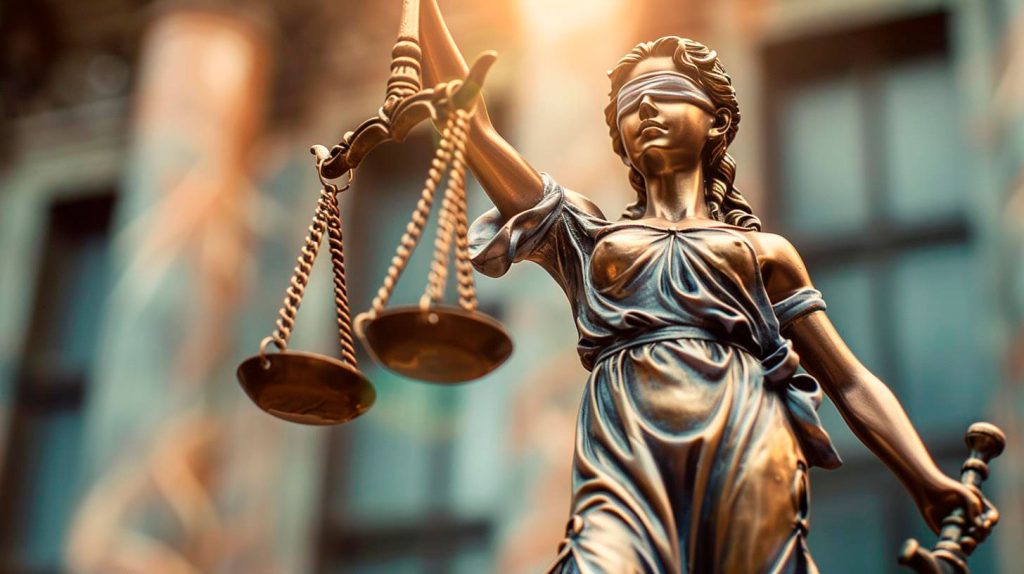
Seeking Compensation for Damages Caused by Credit Check Violations
Credit check violations can have serious consequences for individuals, including damage to credit scores, denial of credit, and even loss of employment opportunities. Seeking compensation for these damages is important to hold companies accountable and protect your rights as a consumer.
Understanding Credit Check Violations
Credit check violations occur when a company pulls your credit report without your permission or uses information from your report in a way that violates your rights under the Fair Credit Reporting Act (FCRA). Companies are required to obtain your consent before accessing your credit report, and they must adhere to strict guidelines on how they use the information contained in the report. Violations of these laws can result in significant harm to consumers.
The Benefits of Seeking Compensation
Seeking compensation for damages caused by credit check violations can help you recover financial losses, restore your credit standing, and hold companies accountable for their actions. By pursuing legal action against companies that violate your rights, you send a message that such behavior will not be tolerated and may prevent similar violations from occurring in the future. Additionally, compensation can provide you with the resources needed to repair any damage done to your credit and financial standing.
- Financial compensation for damages suffered
- Restoration of damaged credit standing
- Accountability for companies that violate consumer rights
- Prevention of future violations
Statistics on Credit Check Violations
According to a recent study, nearly 25% of consumers have errors on their credit reports that could affect their credit scores. These errors could result in denial of credit, higher interest rates, and other negative consequences. Additionally, credit check violations have been on the rise in recent years, with more consumers reporting unauthorized access to their credit reports.
Statistics show that consumers who suffer from credit check violations often experience financial hardship, stress, and frustration as a result. It is essential for individuals to be aware of their rights under the law and take action to protect themselves from such violations.
How to Seek Compensation
If you believe that your rights have been violated through unauthorized credit checks or misuse of your credit report information, it is essential to seek legal guidance from experienced attorneys who specialize in consumer protection laws. These professionals can help you understand your rights, assess the damages you have suffered, and determine the best course of action for seeking compensation.
By taking legal action against companies that have violated your rights, you can hold them accountable for their actions and recover the damages you have incurred. Seeking compensation for credit check violations is an important step in protecting your rights as a consumer and ensuring that you are not unfairly harmed by unlawful practices.
Steps to Take if Your Credit Report is Incorrect or Inaccurate
Inaccuracies in your credit report can have a negative impact on your ability to obtain credit, loans, or even secure employment.
Understanding the Importance of a Credit Report
A credit report is a detailed record of an individual’s credit history, including information on their credit accounts, payment history, and outstanding debts. Lenders, employers, landlords, and insurance companies all use credit reports to assess an individual’s financial responsibility and risk. Having accurate information on your credit report is essential to maintaining a good credit score and overall financial well-being.
Common Errors Found in Credit Reports
There are several common errors that can be found in credit reports, including:
- Incorrect personal information, such as name, address, or social security number
- Accounts that do not belong to you
- Duplicate accounts
- Incorrect payment history
- Outdated information
If you come across any of these errors in your credit report, it is important to take action immediately to have them corrected.
Steps to Take if Your Credit Report is Incorrect
1. Review Your Credit Report
The first step is to obtain a copy of your credit report from all three major credit bureaus – Equifax, Experian, and TransUnion. Review each report carefully and make note of any errors or inaccuracies that you find.
2. Dispute Errors with the Credit Bureaus
Once you have identified errors in your credit report, you should file a dispute with the credit bureaus. This can typically be done online through their websites. Provide any supporting documentation you have to prove that the information is incorrect.
3. Contact the Creditor
If the error on your credit report is related to a specific account, it is important to contact the creditor directly to inform them of the mistake. They may be able to provide you with documentation to support your dispute with the credit bureaus.
4. Follow Up
It is crucial to follow up with the credit bureaus and creditors to ensure that the errors on your credit report are corrected. Keep detailed records of your communications and any responses you receive.
Benefits of Correcting Errors on Your Credit Report
Correcting errors on your credit report can have several benefits, including:
- Improving your credit score
- Making you more attractive to lenders
- Increasing your chances of being approved for credit or loans
- Preventing identity theft
By taking the necessary steps to correct inaccuracies on your credit report, you can ensure that your financial reputation remains intact and that you have access to the credit and opportunities you deserve.
Remember, your credit report is a reflection of your financial responsibility and credibility. Ensuring that it is accurate and up-to-date is crucial to your financial well-being. If you encounter any errors on your credit report, don’t hesitate to take action and follow the steps outlined above to have them corrected.
For more information on credit reports and how to correct errors, consult with a qualified attorney who specializes in credit and consumer law. Our team of experts is here to help you navigate the often complex world of credit reporting and ensure that your rights are protected.
Understanding Your Legal Rights in Regards to Credit Check Violations
As a consumer, it’s essential to be aware of your rights and take action if you believe your rights have been violated.
Legal Protections Against Credit Check Violations
Under the Fair Credit Reporting Act (FCRA), consumers have certain rights when it comes to credit checks. This federal law regulates how consumer credit information is collected, used, and shared. It also gives consumers the right to access their credit reports and dispute any inaccuracies. If a company violates the FCRA, consumers can take legal action against them.
One common type of credit check violation occurs when a company conducts a credit check without your permission. This unauthorized inquiry can have a negative impact on your credit score and can be in violation of the FCRA. If you believe a company has conducted an unauthorized credit check on you, you may have grounds for legal action.
Steps to Take If Your Rights Have Been Violated
If you believe your rights have been violated in regards to credit checks, there are steps you can take to protect yourself and seek justice. Here are some steps to consider:
- Request a copy of your credit report to review any unauthorized inquiries.
- Contact the company that conducted the unauthorized credit check and inquire about the reason for the inquiry.
- If the company refuses to provide a valid reason or correct the error, consider filing a complaint with the Consumer Financial Protection Bureau (CFPB).
- Consult with a lawyer who specializes in consumer rights and credit reporting violations to discuss your legal options.
Benefits of Knowing Your Legal Rights
By understanding your legal rights in regards to credit check violations, you can protect yourself from potential harm and take action against companies that violate your rights. Knowing your rights empowers you as a consumer and can help you navigate the complex world of credit reporting with confidence.
Additionally, holding companies accountable for credit check violations can help prevent future abuses and protect other consumers from similar mistreatment. By standing up for your rights, you not only protect yourself but also contribute to a fairer and more transparent credit reporting system.
Industry Statistics on Credit Check Violations
According to a recent report by the CFPB, credit reporting errors are a common issue faced by consumers. In fact, the report found that 20% of consumers had at least one error on their credit report that could impact their credit score. These errors can be the result of unauthorized credit checks, inaccurate reporting, or identity theft.
Furthermore, the report revealed that many consumers are unaware of their rights under the FCRA and how to take action against companies that violate these rights. By educating yourself on your legal rights and staying informed about credit reporting practices, you can protect yourself from potential violations and safeguard your financial well-being.
Understanding your legal rights in regards to credit check violations is crucial for protecting yourself as a consumer. By knowing your rights under the FCRA and taking action against companies that violate these rights, you can advocate for your financial well-being and hold companies accountable for their actions.
Don’t hesitate to seek legal guidance if you believe your rights have been violated in regards to credit checks. By working with a knowledgeable lawyer, you can explore your legal options and seek justice for any violations that have occurred.
Fighting Back Against Unlawful Credit Inquiries and Reporting
This can happen when a creditor or debt collector pulls your credit report without your permission, or when inaccurate information is reported to the credit bureaus. In these cases, it is important to know your rights and take action to protect your credit score.
Understanding Unlawful Credit Inquiries
Unlawful credit inquiries occur when a creditor or debt collector pulls your credit report without a permissible purpose. Permissible purposes include when you apply for credit, insurance, or employment, or when you give permission for someone to access your credit report. If you have not given permission for someone to pull your credit report, it is considered an unlawful inquiry.
Unlawful credit inquiries can negatively impact your credit score and make it more difficult for you to obtain credit in the future. They can also be a sign of identity theft, as unauthorized inquiries may indicate that someone is trying to open accounts in your name. It is important to monitor your credit report regularly and dispute any unauthorized inquiries that appear.
Dealing with Inaccurate Credit Reporting
Inaccurate credit reporting occurs when incorrect information is reported to the credit bureaus, leading to a lower credit score. This can happen for a variety of reasons, such as a creditor reporting a late payment that you actually made on time, or a debt collector reporting a debt that is not yours. Inaccurate credit reporting can have serious consequences for your financial health, so it is important to address these errors as soon as possible.
The Fair Credit Reporting Act (FCRA) gives consumers the right to dispute inaccurate information on their credit reports. If you believe that there is inaccurate information on your credit report, you can file a dispute with the credit reporting agency that issued the report. The agency is required to investigate your dispute and remove any inaccurate information within 30 days.
Protecting Your Rights
It is important to know your rights when it comes to unlawful credit inquiries and reporting. Under the FCRA, consumers have the right to access their credit reports for free once a year from each of the three major credit bureaus – Equifax, Experian, and TransUnion. Consumers also have the right to dispute inaccurate information on their credit reports and have it corrected or removed.
If you believe that your rights have been violated and your credit score has been negatively impacted by unlawful credit inquiries or reporting, you may have grounds for legal action. A consumer protection lawyer can help you understand your rights and take action to protect your credit score. By fighting back against unlawful credit inquiries and reporting, you can ensure that your credit score accurately reflects your financial history and increase your chances of obtaining credit in the future.
Your credit score is one of the most important aspects of your financial life, and it is crucial to protect it from unlawful credit inquiries and reporting. By understanding your rights under the FCRA and taking action to dispute inaccurate information on your credit report, you can fight back against unlawful credit inquiries and reporting and protect your financial health. If you believe that your rights have been violated, don’t hesitate to seek the help of a consumer protection lawyer who can guide you through the legal process and help you take action to protect your credit score.













Yes, there are laws like the Fair Credit Reporting Act that protect consumers from unauthorized credit checks. To ensure your rights are upheld, monitor your credit report regularly and be proactive in addressing any suspicious activity.
I had no idea that companies had to have your permission to do a credit check! That’s crazy! What can I do if I suspect a violation?
OMG, that’s so shady! Companies can’t just pull your credit willy-nilly. You should definitely look into your legal rights in this situation. Could be some serious violations happening.
My credit score dropped after a company did a hard pull without my permission. Can I take legal action against them for violating my rights?
Yeah, it’s a common misconception. If you suspect a violation, you should first request a copy of your credit report to see if there are any unauthorized inquiries. Then, contact a lawyer who can help you determine your next steps.
Yeah, for real! You should contact a lawyer who specializes in this stuff. They can help you figure out if the company violated any laws and what kind of compensation you might be entitled to.
Do you think I could sue for damages if my credit was damaged because of an unauthorized credit check? Like, that seems so unfair!
Hey, has anyone else been dealing with credit check violations? Like, I applied for a new credit card and they did a hard pull on my credit without my permission. It’s super frustrating!
I heard that there are laws in place to protect consumers from illegal credit checks. Is that true? How can I make sure my rights are being upheld?
If the unauthorized credit check caused harm to your credit score, you may have grounds to take legal action against the company. Consult with a lawyer to discuss your options and determine the best course of action.
Definitely possible. If a company unlawfully pulled your credit and it caused damage, you could potentially sue for compensation. But you’ll need to gather evidence and consult with a lawyer to pursue legal action.